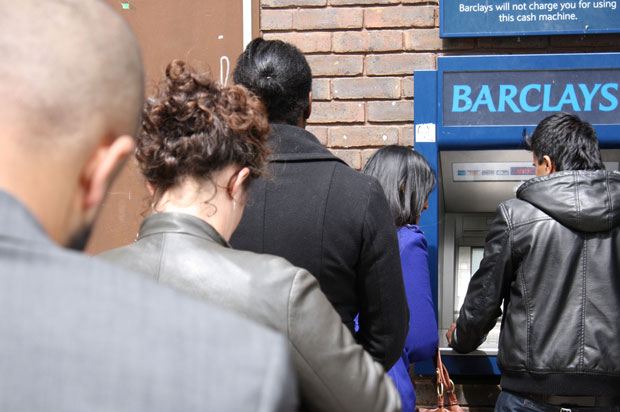Do I need insurance?
It’s the age-old question: do I need insurance? How do I know I’m not invincible? From the mundane (household contents) to the morbid (life insurance), The Mix uncovers the truth about insurance.

"Really? Do I?"
What is insurance?
If something is insured and it gets lost, broken or stolen, you can ring up your insurance company and they’ll usually give you the money to replace it. So if, for example, your phone gets nicked, if you’ve paid for insurance you can normally claim the money back.
If you are a risk taker you may think you don’t need it, whereas if you’re very cautious you may be tempted to take out every policy available. The truth probably lies somewhere in between. Before you do take it out, it’s important to compare different policies and read the small print. Let’s take a look at some insurance advice for some typical scenarios.
Do I need contents insurance?
Contents insurance covers what’s inside your home, so stuff like your clothes, television, fridge, laptops, jewellery and so on. In other words, what you would take with you if you moved.
If you’re renting, you don’t need to worry about the building and the things your landlord has put there. You just need to cover your valuables. Look out for good policies that will also cover them when you take those items out of your home as well.
If you own your home you will also need buildings insurance and you can normally get this with contents insurance in one policy.
Do I need to insure my phone?
It depends how much your phone is worth – your old brick probably doesn’t need it (after all, who would steal it?) but if you have the latest phone, it’s worth protecting.
You can include your phone in your contents insurance, but the excess for these policies is often quite high. For example, if the excess is £500 and your phone is worth £400 – there’s no point claiming.
You can insure your phone on its own policy which will have a lower excess, although it’s more money going out of your bank account every month.
Your phone network, or the shop you bought your phone from, may also offer it. This can be expensive, but it often means you can get a replacement phone more quickly.
Do I need car insurance?
If you have a car, in the eyes of the law it has to be insured. Even if it’s just basic ‘third party insurance’ which only covers you if you injure someone or damage their car.
Car insurance can be eye-wateringly expensive if you’re under 25 but there are ways to make it cheaper. Check out this article for some practical tips on keeping those premiums down.
Do I need any other types of insurance?
The other common type is travel insurance, which pays out if your holiday is cancelled, your luggage is stolen and, most importantly, if you become ill or have an accident. People also take out life insurance, health insurance, payment protection insurance … the list goes on.
Out of all insurances life insurance is another essential financial safeguard that individuals often consider. This type of insurance provides a crucial safety net for your loved ones, offering financial support to cover expenses such as mortgages, debts, and funeral costs. For those who are curious about the potential costs involved, a helpful resource to consider is a free life insurance cost calculator. This tool assists in estimating the expenses associated with various life insurance policies, allowing individuals to make informed decisions based on their unique needs and financial circumstances. Here’s a free life insurance cost calculator that can guide you in choosing the right coverage to suit your priorities and ensure peace of mind for you and your loved ones. It serves as a valuable tool in long-term financial planning, ensuring that your family is protected even when you’re no longer there to provide for them.
If you’re looking for some travel advice, read The Mix’s travel insurance article here.
How do I choose a policy?
There are three things you need to think about:
- How much the policy costs (in other words, which is the cheapest?)
- Does the policy cover everything you need it to (For example, if it’s for travel do you need to be covered for ski accidents?)
- What the excess charge is (how much you have to pay up front, before your policy pays out)
Fortunately there are now loads of comparison sites to help you work this out.
Excess charges
Policies often have hidden costs and hard-to-understand small print. Look out for ‘excess’ charges; the higher the excess, the more of the first part of any claim you will have to pay. Some policies have an excess of £50, others of £200. You can sometimes reduce the premiums you pay by volunteering to take a larger excess.
How do I make an claim?
- Keep any evidence relating to the claim: Depending on the situation either get the names and addresses of any witnesses, keep any relevant receipts or take photographs.
- Contact the broker/insurer: Give them a ring, then follow up with a letter or email, keeping a copy for yourself. They should send you a claim form or tell you how to claim online.
- Depending on the type of policy you have, you may be asked to provide two or three professional estimates for the repairs with the form or the insurance company may arrange the repairs from an approved panel of companies.
Don’t assume you’re covered for all eventualities
It’s easy to assume that, once you’ve bought insurance, you’re covered for everything, but that’s unlikely to be the case. Policies vary widely between different providers so it’s really important that you read the small print (dull as it is) or talk to a broker who understands the differences between them.
If you’re unsure about what is and isn’t covered, give the company your policy is with a call to double check and make sure you get the details confirmed in writing.
Who can I complain to?
If you aren’t happy with the way your insurance company is acting, you can contact the Financial Ombudsman Service on 0300 123 9 123 for free, independent advice on resolving the dispute.
If you need further support on this, give us a call on 0808 808 4994. We’re unable to give specific money advice but can guide you to the best places for expert support. For example:
- The Money Advice Service offers free, unbiased and independent advice about all financial matters. 0800 138 7777
- Citizens Advice provides free help with housing, money and legal problems. Find your local centre.
- Chat about this subject on our Discussion Boards.
- Need help but confused where to go locally? Download our StepFinder iPhone app to find local support services quickly.
Next Steps
- The Money Helper offers free, unbiased and independent advice about all financial matters. 0800 138 7777
- Citizens Advice offer free help with housing, money and legal problems. Find your local centre.
- Chat about this subject on our Discussion Boards.
By Holly Turner
Updated on 21-Jun-2021
No featured article














